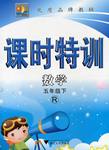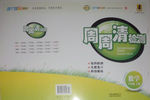
����Ŀ���ٶ�Ӣ�������ʦҪ��ͬ��֮�佻�������ģ���������ͬ��д���������ġ����й���10�����Դ���ÿ���������������������漰һ�����ʵ����ӡ�ɾ�����ġ�
���ӣ���ȱ�ʴ���һ��©�ַ���(��)������������д���üӵĴʡ�
ɾ�����Ѷ���Ĵ���б��(��)������
�ģ��ڴ��Ĵ��»�һ���ߣ����ڸô�����д���ĺ�Ĵʡ�
ע�⣺ 1.ÿ���������ľ�����һ�ʣ�
2. ֻ������10�������ߣ��ӵ�11���𣩲��Ʒ֡�
While taking a walk with my pet dog this morning, I found the middle-aged man nearby was shouting on his phone. Obvious, he had a bad day. Before he left, I noticed his keys were on the ground. So I immediately picked up and ran away to find the man. Several minutes later, I found him, whom was still shouting on his phone beside his car. I walked to him and asked if he could hold on a little seconds. At first, he was angry about my interrupt. Then I showed to his keys and explained the whole thing. On heard my words, he immediately hang up his phone and apologized for his rudeness.
���𰸡�
��1��the��a
��2��Obvious��Obviously
��3��Before��After
��4����picked��up֮���them
��5��whom��who
��6��little��few
��7��interrupt��interruption
��8��ȥ��to
��9��heard��hearing
��10��hang��hung
��������
�������������ɢ��ʱ�����ڴ�绰���������ӵ�Կ�ף��������绰������������������������ߵ�Ǹ��
��1��the��a �˴���ʾ��һ�����������ڴ����ش�绰�����ʰ�the��Ϊa��
��2��Obvious��Obviously ���⣺�Զ�������������ò��������������������ӣ��ʰ�Obvious��ΪObviously��
��3��Before��After ���⣺���뿪֮����ע�����Կ���ڵ��ϡ��ʰ�Before��ΪAfter��
��4����picked��up֮���them ��Ϊǰ��keys�Ǹ�����ʽ�������Ұѡ����ǡ�������������picked��up֮���them��
��5��whom��who �˴��������Զ���Ӿ����Ĺ�ϵ�������ָ�ˣ��ʰ�whom��Ϊwho��
��6��little��few ������seconds���룩�ǿ������ʣ��ʰ�little��Ϊfew��
��7��interrupt��interruption ���ݴ����������ʺ�����������ʽ���ʰ�interrupt��Ϊinterruption��
��8��ȥ��to show��չʾ���Ǽ��ﶯ�ʣ�����ֱ�Ӹ������ȥ��to��
��9��heard��hearing �̶�����on +����/doing����ʾ��һ���������������ʰ�heard��Ϊhearing��
��10��hang��hung ���⣺һ�����ҵĻ��������̹Ҷϵ绰�����ҵ�Ǹ�����ݾ����֪���˴���һ���ȥʱ̬���ʰ�hang��Ϊhung��
��֪ʶ��չ��
1. (a) few��(a) little���÷���(a) few���ڸ�����������֮ǰ��(a) little���ڲ���������֮ǰ��He took a few biscuits. (=several) He took little butter. (=not much) �����6С�� little��few seconds���룩�ǿ������ʣ��ʰ�little��Ϊfew��
2. �̶����䣺on +����/doing��һ������������On hearing the bad news��she couldn��t help crying.һ�������Ϣ����������ޡ�


 ������ѧ��ʱ��ҵϵ�д�
������ѧ��ʱ��ҵϵ�д� ���������ʱ��ѵϵ�д�
���������ʱ��ѵϵ�д� �㽭�¿γ���άĿ�������ʱ��ѵϵ�д�
�㽭�¿γ���άĿ�������ʱ��ѵϵ�д� ��������ϵ�д�
��������ϵ�д�
| �꼶 | ���пγ� | �꼶 | ���пγ� |
| ��һ | ��һ��ѿγ��Ƽ��� | ��һ | ��һ��ѿγ��Ƽ��� |
| �߶� | �߶���ѿγ��Ƽ��� | ���� | ������ѿγ��Ƽ��� |
| ���� | ������ѿγ��Ƽ��� | ���� | ������ѿγ��Ƽ��� |
��Ŀ������Ӣ�� ��Դ�� ���ͣ�
����Ŀ��
��1��He felt ________(ʧ����) when he heard his low mark in the exam.
��2��Her ________(̬��) towards learning Chinese has changed a lot.
��3��My daughters ________(����) my telling stories every night.
��4��A shark can smell blood at a ________(����) of half of a kilometre.
��5��He found a knife in an ________(��������) house.
��6��F_______(���˵�), he was admitted into the university after hard work.
��7��At the end of the game players traditionally ________(����) shirts with each other.
��8��We need to keep the ________(ƽ��) of nature.
��9��I intend to take full ________(����) of this trip to buy the things we need.
��10��It��s ________(������) to feel nervous before an exam.
��11��He told Wang Lin addiction to drug is sure to ________(Ӱ��) his health.
��12��Smog is a ________(�����) of smoke and fog.
��13��The old couple decided to ________(����) a boy and a girl though they had three of their own.
��14��I can��t ________(����) any more. I��m going to run away.
��15��He has broken two world records in one day, which is quite a(n) ________(�ɾ�).
�鿴�𰸺ͽ���>>
��Ŀ������Ӣ�� ��Դ�� ���ͣ�
����Ŀ��Did you grow up in one culture, your parents came from another, and you are now living in a��1��(total)different country? If so, then you are a third-culture kid.
The term ��third��culture kid�� ��2��(use) in the 1960s for the first time by Dr. Ruth. She first came across this phenomenon while ��3��(research) North American children living in India. In general, third-culture kids benefit from ��4��(they) intercultural experience and they often reach excellent academic result.
Yet many ��5��(difficulty) may arise from this phenomenon. Third-culture kids may not be able to adapt themselves completely��6��their new surroundings. Also, they often find it hard ��7��develop)new friendship. Additionally, for a third-culture kid, it is often easier to move to a new country ��8��to return to his homeland. For example, after living in Australia for many years, Louis finally returned to the country ��9��she was born. She didn��t know anything about current TV shows��10��fashion trends. And she didn��t share the same values as other teens of her age.
�鿴�𰸺ͽ���>>
��Ŀ������Ӣ�� ��Դ�� ���ͣ�
����Ŀ��������һ�ζ��ף��ش�����С�⡣
��1��What did the man want to do when his car got stuck in a no-parking area?
A. Leave the police a note. B. Call the police station.
C. Get someone to pull the car away.
��2��Why did the man go to the bank?
A. Because he had to pay the fine there.
B. Because he wanted to get small change.
C. Because he intended to call the traffic police.
��3��How did the man feel about the police officer��s final decision?
A. Angry. B. Sad. C. Happy.
��4��What was the police officer��s attitude to the letter from the man?
A. He felt it foolish that the man made up such a story. B. He believed the man came across many misfortunes. C. He took pity on the unlucky man who had a bad day.
�鿴�𰸺ͽ���>>
��Ŀ������Ӣ�� ��Դ�� ���ͣ�
����Ŀ��
��1��On ___________(ƽ��), 90,000 people are killed in traffic accidents in China every year.
��2��My brother has graduated from our school and soon he will be ____��¼ȡ) to college.
��3��Our foreign teacher speaks Chinese very ____________��fluent�� as if he were Chinese.
��4��The boss asked him for a reasonable __________(explain) for being late or he would be fired.
��5��The girls gave a wonderful concert. Their parents watched with great ___________ ( satisfy).
��6��Now that you are a college student, you should learn to be___________�������ģ�of your parents�� help.
��7��The children had an ___________(argue) about what game to play, but they didn��t reach an agreement.
��8��In the long run, one should save money for ___________ (�������).
��9��He shows _______ (cruel) to those who are against him. That is to say , he is cruel to them.
��10��Do you know how many athletes will _______ (competition) in the game ?
��11��be concerned about ________
��12��have a command of ________
��13��at present ________
��14��make up one��s mind ________
��15��serve as ________
��16��������________
��17�������ظ����ɿ���________
��18������������________
��19��˵ʵ��________
��20�������� ���ܣ�Σ����________
�鿴�𰸺ͽ���>>
��Ŀ������Ӣ�� ��Դ�� ���ͣ�
����Ŀ��Balancing work and school is not an easy task for me. My first term in college has come and gone and I��ve had to balance a job there, too. I want to cut one loose. Honestly, many times I thought I wanted to drop out of school and just do my job because I needed the money. For a long while I made myself believe that school was getting in the way of my job and money. Not only was I trying to do work and school, but also I was trying to have a social life. Many times I thought that there were not enough hours in the day but I wasn��t managing my time right. Hanging out with friends may have been wonderful but it wasn��t putting money in my pocket or knowledge in my brain. Friends would have to wait. I was back on the see-saw (���ΰ�) of balancing work and school.
Scheduling and planning became the key to my success. Setting deadlines and meeting them were important to my college experience. Planning was going well and I felt ready to try and throw a social life back there. I tried to make plans with friends that didn��t conflict with my deadlines. That was actually harder than I thought. So once again my social life had to be put on hold (����). My friends were very understanding and encouraged me to do my work. The extra motivation really proved helpful in the end. Some friends would joke that I was all work and no play but sometimes that��s what has to happen to get work done.
As the last term came to an end I can say I learned a lot about college life. Planning is necessary for organization. Drawing up a list of all things I had to do at the beginning of the week and actually completing them made me feel good. Not only have I learned something new about organization, but also I acquired a new tool that I can take everywhere with me and use effectively.
��1��The author wanted to drop out of school because .
A. he wanted to earn money
B. he wasn��t good at managing his time
C. he wanted to live an active social life
D. he couldn��t do well in his studies
��2��Why did the author stop hanging out with his friends?
A. He had to wait for them. B. It was a waste of time.
C. He didn��t need a social life. D. They didn��t understand him.
��3��How did the author succeed in balancing work and school?
A. By putting his studies first. B. By making plans with his friends.
C. By following his friends�� advice. D. By sticking to his schedule.
�鿴�𰸺ͽ���>>
��Ŀ������Ӣ�� ��Դ�� ���ͣ�
����Ŀ��Who is Jack probably talking with?
A. His mother. B. His teacher. C. His dentist.
�鿴�𰸺ͽ���>>
��Ŀ������Ӣ�� ��Դ�� ���ͣ�
����Ŀ��Ever walked to the shops only to find, once there, you've completely forgotten what you went for? Or struggled to remember the name of an old friend? For years we've accepted that a forgetful brain is as much a part of ageing as wrinkles and grey hair. But now a new book suggests that we've got it all wrong.
According to The Secret Life of the Grown-up Brain, by science writer Barbara Strauch, when it comes to the important things, our brains actually get better with age. In fact, she argues that some studies have found that our brain hits its peak between our 40s and 60s�� much later than previously thought.
Furthermore, rather than losing many brain cells as we age, we retain ��������them, and even produce new ones well into middle age. For years it��s been assumed that brain, much like the body, declines with age. But the longest, largest study into what happens to people as they age suggests otherwise.
This continuing research has followed 6,000 people since 1956, testing them every seven years. It has found that on average, participants performed better on cognitive ����֪�ģ�tests in their 40s and 50s than they had done in their 20s. Specifically, older people did better on tests of vocabulary, verbal memory (how many words you can remember) and problem solving.
Where they performed less well was number ability and perceptual speed��how fast you can push a button when ordered. However, with more complex tasks such as problem-solving and language, we are at our best at middle age and beyond. In short, researchers are now coming up with scientific proof that we do get wiser with age.
Neuroscientists are also finding that we are happier with ageing. A recent US study found older people were much better at controlling and balancing their emotions. It is thought that when we��re younger we need to focus more on the negative aspects of life in order to learn about the possible dangers in the world, but as we get older we��ve learned our lessons and are sub-consciously aware that we have less time left in life: therefore, it becomes more important for us to be happy.
��1��Barbara Strauch probably agrees that ______.
A. people��s brains work best between their 40s and 60s
B. the young are better at handling important things
C. ageing leads to the decline of the function of the brain
D. wrinkles and grey hair are the only symbols of ageing
��2��The continuing research has found older people perform better on _____ .
A. number ability B. vocabulary tests
C. perceptual speed D. body balance
��3��People are happier with age because ______.
A. they know how to share feelings
B. they learn to value the time left
C. they cannot focus on negative aspects
D. they do not realize the possible dangers
��4��What is the main idea of the passage?
A. People get more forgetful with age. B. People get wiser with age.
C. People get happier with age. D. People get more self-aware with age.
�鿴�𰸺ͽ���>>
��Ŀ������Ӣ�� ��Դ�� ���ͣ�
����Ŀ��Mrs. Brown was tired after her day��s shopping in London, so she went into a restaurant for a cup of tea ______ catching the train home. When she had ordered her tea, she suddenly remembered that she had to buy some ______ for her husband, who had a cough.
��Is there a chemist��s near here?�� she asked the waiter. ��Yes, madam.�� the waiter said. ��It��s only about three minutes�� walk away. Turn right when you go out of the restaurant, then take the second turning to the left. You��ll find a big chemist��s about a hundred yards up the road on the right-hand side. It closes at five, but if you ______, you��ll just get there in time.��
Mrs. Brown followed the waiter��s directions ______ and found the chemist��s shop without any difficulty. She bought the cough mixture and started to ______ her way back to the restaurant. But after she had walked for about ten minutes and there was still no ______ of the restaurant, she realized that she must have made a mistake.
��Oh! I am ______!�� said Mrs. Brown. ��I��ve left all my shopping in the restaurant and now I��m lost.��
She was still wondering what to do when a policeman came ______ and asked if he could help. Mrs. Brown ______ what had happened.
��Well, first of all,�� said the policeman, ��we had better go back as far as the chemist��s��. ��Now,�� suggested the policeman, when they got to the chemist��s, ��let��s go in this direction. It leads to the main road, where we shall probably find your restaurant.�� When they reached the main road, the policeman said, ��I think you��ll find the restaurant you are looking for along there, on the opposite side of the road.�� Mrs. Brown thanked the policeman for his help. ��I can��t _______ how I went wrong,�� she said. The policeman smiled. ��It��s quite easy,�� he said, ��to get lost in a big city like London.��
��1��A. when B. until C. before D. as
��2��A. clothing B. dessert C. gift D. medicine
��3��A. move B. hurry C. wander D. compete
��4��A. carefully B. doubtfully C. curiously D. genuinely
��5��A. make B. change C. push D. clear
��6��A. way B. signal C. poster D. sign
��7��A. confused B. stupid C. boring D. slow
��8��A. across B. up C. in D. back
��9��A. discovered B. confirmed C. explained D. admitted
��10��A. measure B. inspect C. expect D. understand
�鿴�𰸺ͽ���>>
����ʡ������Υ���Ͳ�����Ϣ�ٱ�ƽ̨ | �����к���Ϣ�ٱ�ר�� | ����թƭ�ٱ�ר�� | ����ʷ���������к���Ϣ�ٱ�ר�� | ������Ȩ�ٱ�ר��
Υ���Ͳ�����Ϣ�ٱ��绰��027-86699610 �ٱ����䣺58377363@163.com